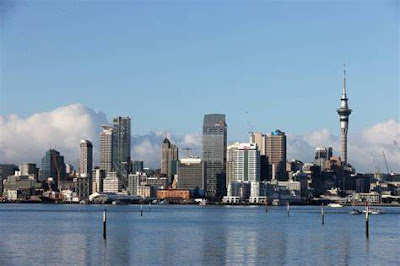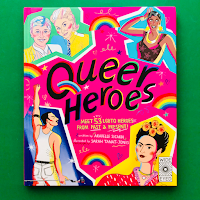When I caught Covid I was very sick. It was the first time I've ever felt I should go to hospital for an illness. Not because I was freaked out due to the media hype, but because I really struggled to breathe. The only reason I didn't go was because we caught it during the height of the first wave of Omicron and our healthcare system was slammed. I didn't want to be waiting around in A&E with a bunch of other sick people whilst feeling so awful and I was worried that other people worse off than me might end up missing out. So instead, I used my inhalers excessively, threw all the Lemsip and anti-inflammatories I had at it, and didn't sleep for the worst three days.
At the time we caught covid you had to isolate for a minimum of ten days. I ended up isolating for almost double that. During the worst of being covid positive my chest felt like there was a huge weight on it - breathing was such an effort I had muscle pain in my chest for weeks. I was grateful Murray was less sick than I was so he could look after the kids - I spent several days in bed because I was too unwell to do anything. As a consequence of Covid I got a chest infection. Because I still had Covid symptoms I could not see a GP in person, so had a phone consult to get antibiotics and Murray picked them up for me. On my first shift back at work I had to finish early because my thighs started shaking just from the effort of standing up for several hours.
Being this sick was a bit of a shock. While I've always taken Covid seriously, I never considered myself a high risk person. While I knew I was the highest risk person in my household due to being asthmatic, I thought due to my age, general health and fitness level I would be ok. I was much more concerned about my Grandma or Mum catching it*. My asthma is generally not an issue for me. Prior to Covid I genuinely can't remember the last time I used my inhaler. I'm just so glad I erred on the side of caution and updated my script before I got sick. I don't think I could have avoided hospital if I didn't have inhalers.
While recovery was slow, I was recovering. I tried to follow the advice available at the time which was to go easy with exercise and stop when you feel tired. Prior to getting sick, I was swimming 1200 - 1500 metres three to five days a week plus going for walks and living a generally active life. I had lost 11 kilos over eight months from being active and eating healthier. After Covid, I stayed out of the pool completely for the first three weeks. After that, I thought a little swim wouldn't hurt, so I did one slow 600 meter swim.
I felt great while I was swimming - but after I got home I felt wobbly, went to have a nap and woke up three hours later. After that first swim I waited another week before trying again. Again, I didn't swim far or fast and didn't feel bad while exercising, but afterward I felt totally wiped out. So I stopped swimming for a bit, and switched to little bush walks. Slowly, my energy levels started returning. I was managing at work ok.
This holiday was no different. I stayed in a place I'd stayed before and enjoyed the natural landscapes of the Tawharanui Peninsula. I did go for beach walks, but I did my best to keep each walk under 45 minutes. While I did go out in the mornings, I spent my afternoons doing Paint-by-numbers in the sunshine of the large bay window in my room. I was asleep before 10pm each night. It was by no means a busy time away. I thought I'd come home refreshed and full of energy.
But when I got home I felt like I'd been dipped in concrete. I struggled to get out of bed in the mornings. I needed to use my inhaler after walking short distances. I ended up taking a week off work because I couldn't stay on my feet for longer than a few hours before getting shaky. I booked an in-person appointment with a GP. Because I technically had Covid symptoms, I had to stay in my car for the first part of the consult. She tested me for all the usual stuff: iron, B12, blood sugars, thyroid and all came back fine. She put me on a reduced schedule at work for six weeks, gradually easing my hours back to previous levels.
What I learned from that consult was not only that I likely had Long Covid, but that what I considered rest was not what Drs mean by rest. Walking on the beach was too much exercise. What they considered to be exercise was walking to the mailbox and back. While I had slowed down, proper rest wasn't feasible given my usual life. I work in a very active job where I'm on my feet all day, often running around and sometimes doing heavy lifting. As a working parent, things are busy. There's school drop offs, pick ups, play dates, after school activities as well as the cooking and cleaning. My life isn't conducive to rest. Regardless of how early my bedtime is, regardless of cutting out exercise and trying to take naps, my life was too active to aid in my recovery. She said things may have been better had I completely rested for the first month after getting sick which is nigh on impossible as a primary caregiver.
.jpg)
Post Covid-19, more commonly known as Long Covid, is defined as chronic fatigue, shortness of breath and cognitive dysfunction unexplainable by other causes, 12 weeks post infection. While it is similar to post-viral infection it is far more common. Where around 2% of viruses will result in post-viral fatigue about 10% of covid cases result in Long Covid.
As this is a fairly new medical diagnosis, there are still a lot of unknowns around how to treat it besides rest. However, research can tell us what risk factors make us more likely to get it. Here are the more common ones:
- People over 70 are twice as likely to get it than folk aged 18 - 49
- Women in general. And women aged 40 - 50 twice as likely to get it than men in the same age bracket
- Folk with pre-existing mental health issues are 50% more likely than their more mentally well peers, and asthmatics have a 32% greater likelihood of getting Long Covid.
- Those who experience 5 or more different symptoms in the first week of illness are 3 1/2 times more likely to get Long Covid.
- For people who have previously had Epstein Barr Virus (Glandular fever) a Covid infection often reactivates EBV leading to Long Covid symptoms.
- Those who are not vaccinated are 59% more likely to get long Covid than their vaccinated friends and whanau.
It does feel a lot like how I felt when recovering from EBV. My primary symptoms have been fatigue and brain fog, but I also get muscle fatigue and very sore eyes. What is most frustrating for me about this is the inconsistency. I might have a fairly good couple of days where I feel almost normal, then one day I'll wake up and my limbs are heavy lumps again. Now I am well enough that I can walk to school pick up and back without using my inhaler - but if I do that whilst carrying the kids school bags I need my inhaler and a rest when we get home to be able to cope with looking after the kids.
I go to bed by 9.30pm most nights. I can't focus for long periods of time. I struggle to find energy to be social with friends and whanau. My short-term memory is shot. I can't exercise like I used to and I've gained back half the weight I lost last year. It's frustrating. And there's no time frame on when I'll start to feel better.
I've had another unusual symptom: hair loss. While it's not often talked it isn't that uncommon. Any stressful event can trigger hair loss including viral infections.
Having experienced hair loss before***, this aspect of things hasn't been too upsetting for me. As someone with very thick hair I know that to most my hair loss isn't noticeable. But to those who have known me for more than a few years the complete change in my hair texture is hard to miss. While my hair has never exactly been straight, it hasn't been this curly since I was a toddler. This is because I have wavy hair, and now there is less of it it is light enough to embrace its natural wave. I hope it stays like this. It's 100% the only good thing that's come from me having Covid. I've totally embraced my post-Covid curls.
There's not much advice I can give for those who find themselves in a similar position. The easiest way to avoid this is to do your best to avoid Covid. Wear masks. Wash your hands. Get vaccinated. If you do get Covid - rest. If you are an active person like me, that means NO exercise for the first month after infection. If you are not feeling great a month after getting Covid, talk to your GP. Come up with a plan. Make changes to your work/home responsibilities/routines to facilitate actual sitting-on-the-couch level rest.
I've used this stuff a lot over the years
and found it to be gold for aiding energy levels
And be kind. Be kind to yourself if you are slow to recover. It's not your fault. Be kind to others if their recovery looks different to your own - it's not their fault. Long Covid is real, it affects 10 - 20% of us, and it really, really sucks.
* I'm so thankful that they still haven't [touch wood]. If anything, being this sick made me feel much more nervous about others I love catching Covid.
** I have bruised myself by giving myself an arm massage. Like, LOTS of bruises all over both my arms. From a massage. I gave myself. It wasn't that hard. And no, I'm not anaemic. That's all just Covid fun time.
*** Due to a wonky thyroid which has since righted itself.
**** Like it did with EBV, but gut health has gone down the toilet (literally). Foods I used to be able to eat without too much drama are now blowing my tummy up like a balloon.



































